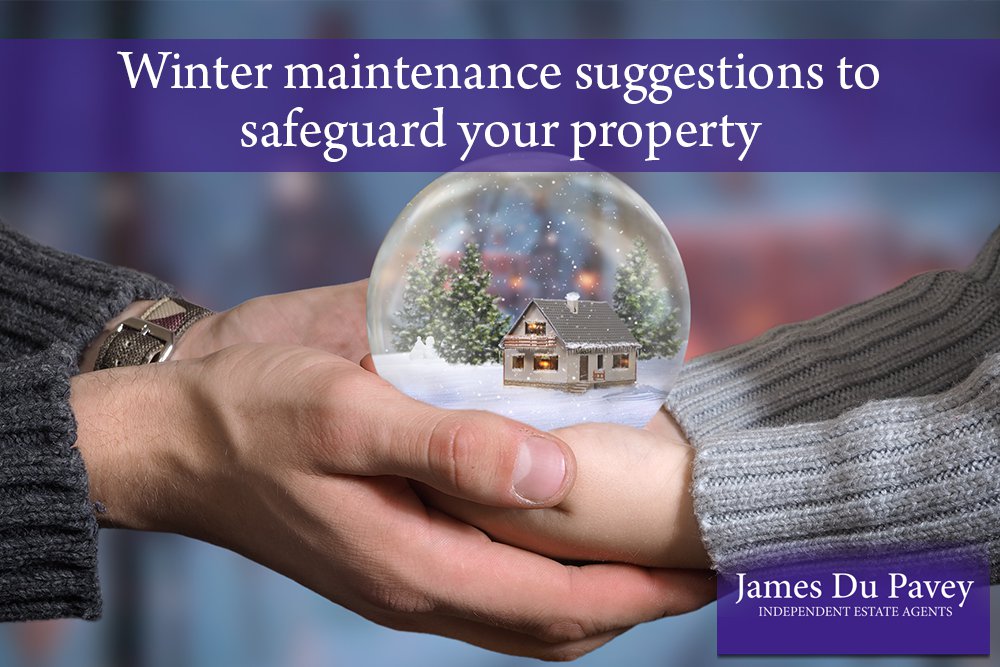
As we’re in the midst of winter, and the cold weather is now in full force, you need to be informed on how to protect your home against any potential seasonal damage, as well as reduce unnecessary spending.
Back in 2018, there were a record number of burst pipers in the UK, resulting in over £194 million worth of insurance pay outs.*
Whilst these can be problematic for homeowners and landlords, there are a whole range of contributing factors that could lead to expensive repair bills at this time of the year.
To help you cut these costs, we’ve collated advice every property owner should be aware of.
1) Protect your pipes
A burst pipe can cause up to £4,000 in damages – rising beyond this amount in the most severe cases.
Pipe insulation, which can be installed yourself, costs next to nothing. It can be used under sinks, on any pipes running along exterior walls and in attics.
Basements are also important to pay close attention to, where 37% of all burst pipes happen. Insulating your water pipes will prevent pipes from freezing or bursting, which can be a huge inconvenience for households over the holidays.
2) Insulate your loft space
Investing money into insulating your loft will save you a small fortune in the long run, with average annual savings as follows:**
– £225 on your energy bill per year for a detached house
– £135 on your energy bill per year for a semi-detached house
– £120 on your energy bill per year for a mid-terrace house
Alongside this financial incentive, insulating your attic will mean you’re directing heat within your property to the living areas, where it needs to be.
By keeping your attic cooler, it may also prevent ice dams from forming on your roof.
3) Clean out and inspect your gutters
Your property’s gutters are there to get rid of rainwater that collects on the roof.
Regular maintenance and checks will prevent blockages from forming. If a problem forms, you’ll start to notice rainwater running down the side of your house and may even spot discoloured walls inside.
Gutters can become clogged with leaves, moss, twigs or even bird nests.
It is very important that the water can be drained, otherwise damp and mould can form, leading to a much more serious issue for you to tackle!
4) Wrap up your hot water tanks
Perhaps an unusual one, but getting your hands on a British Standard Jacket for your hot water cylinder can protect your home and save money too.
The Energy Saving Trust recommends insulation to be 25mm to 80mm thick.
With yearly savings of up to £150, it’s estimated that payback on one of these insulation jackets would take just two months.
5) Bleed your radiators
Rather than do this once a year, homeowners and landlords should routinely check their radiators to release trapped air, as this will ensure they’re working at maximum capacity whenever you decide to turn the heating on.
6) Close off your chimney
A huge loss of heat can arise from unused fireplaces.
If you have a chimney that you do not use, and you would like to board it up, try a chimney balloon.
They can cost as little as £30 and they are incredibly easy to install, with the balloons keeping the cold air out by blocking any drafts.
The cleaning essentials that you need to know about for your festive preparations:
– A rubber broom: if you opt for a real Christmas tree this year and don’t want to battle pine needles on your floor, then you need one of these. As an added bonus, they’re also effective at collecting pet hair too.
– Nylon pan scrapers: over Christmas you are bound to have some stubborn pans that even elbow grease cannot save. Invest in a pan scraper to make the clean-up that much easier.
– Red wine stain remover: There will be wine flowing during the festivities, so make sure you have something at hand to fight resilient stains.
– Mould cleaner: As December is typically wet and cold, it is prime time for mould to form. To get ahead of the problem, consider stocking up on mould cleaner to combat areas as soon as they appear!
For more tips on protecting your home this season, talk to our property professionals.
*Association of British Insurers (ABI)
**Energy Saving Trust






